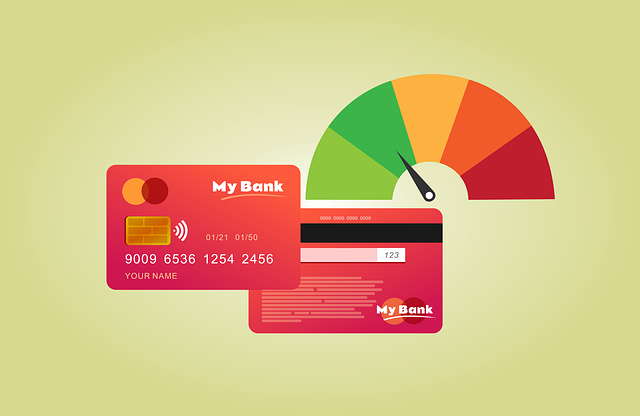Credit scores are crucial numerical indicators of an individual's financial reliability, impacting loan approval and terms. By practicing responsible financial habits like timely bill payments, maintaining low credit card balances, and regularly reviewing credit reports for errors, individuals can significantly improve their credit scores. This leads to better access to favorable loan conditions, including lower interest rates, higher borrowing limits, and reduced fees, ultimately saving money over time. Understanding and managing credit health is essential for securing better funding opportunities and navigating financial journeys with greater ease.
In today’s financial landscape, understanding the impact of credit scores is crucial for navigating funding opportunities. This comprehensive guide delves into the intricate relationship between credit scores and loan approvals, shedding light on how lenders assess borrowers. We explore strategies for improving credit scores, highlighting their significant effect on loan terms and approval rates. Additionally, we discuss building a robust financial future through consistent credit management, empowering folks to make informed decisions.
- Understanding Credit Scores: A Gateway to Funding Opportunities
- The Role of Credit Scores in Lender's Decisions
- Strategies for Improving Your Credit Score
- Impact of High Credit Scores on Loan Approval and Terms
- Building a Strong Financial Future: Maintaining Good Credit
Understanding Credit Scores: A Gateway to Funding Opportunities

Credit scores are a numerical representation of an individual’s financial reliability, based on their credit history and behaviour. They serve as a crucial indicator for lenders when evaluating funding applications. Understanding how to improve credit scores is, therefore, a key step in unlocking better funding opportunities. A higher credit score demonstrates to lenders that you have consistently managed debt responsibly in the past, making you a less risky investment.
This gives borrowers access to more favourable loan terms, including lower interest rates and larger borrowing limits. Conversely, a low or poor credit score can hinder funding approval or result in less appealing loan conditions. By focusing on responsible financial habits like timely bill payments, keeping credit card balances low, and regularly checking your credit report for errors, individuals can gradually improve their credit scores and gain better access to funding options.
The Role of Credit Scores in Lender's Decisions

Credit scores play a pivotal role in lenders’ decisions when it comes to funding approval. These numerical representations of an individual’s borrowing history and creditworthiness are a crucial factor that influences whether a loan application is accepted or rejected. Lenders use credit scores to assess the risk associated with extending credit to a borrower, ensuring they make informed lending choices.
When an individual applies for a loan, mortgage, or credit card, the lender will pull their credit report and score to gauge their financial health. A higher credit score indicates a stronger borrowing history, responsible repayment behavior, and lower credit risk, making lenders more inclined to approve funding. Conversely, a low credit score might suggest potential financial instability or a history of missed payments, prompting lenders to be more cautious in their approval process. Therefore, improving credit scores is an essential step for individuals aiming to gain access to favorable lending terms and secure their desired financial goals.
Strategies for Improving Your Credit Score

Improving your credit score is a strategic process that requires dedication and a clear plan. One effective approach is to regularly review your credit report for any errors or discrepancies, as mistakes can significantly impact your score. Promptly addressing these issues by disputing inaccurate information with the relevant credit bureaus is essential.
Additionally, timely payment of bills holds immense power in enhancing your creditworthiness. Setting up automatic payments or reminders ensures you never miss a due date. Reducing debt is another powerful strategy; paying down high-interest loans and credit cards can substantially improve your score. It’s recommended to focus on paying off debts with the highest interest rates first while making minimum payments on others to maintain a positive payment history.
Impact of High Credit Scores on Loan Approval and Terms

Having a high credit score significantly boosts your chances of securing loan approval and often results in more favorable terms. Lenders view excellent credit as a sign of financial responsibility and reliability, leading to lower interest rates, higher borrowing limits, and reduced fees. This is particularly beneficial when applying for significant loans like mortgages or business funding. An improved credit score demonstrates to lenders that you can manage debt responsibly, which increases the likelihood of approved funding with better conditions.
Credit scores play a crucial role in shaping the loan journey. With a robust credit history, individuals can access competitive interest rates, saving them money over the life of the loan. This is especially advantageous for long-term financing, as it reduces monthly repayments and allows for more flexible financial planning. Thus, focusing on improving credit scores can open doors to better funding opportunities and smoother financial transactions.
Building a Strong Financial Future: Maintaining Good Credit

Building a strong financial future starts with understanding and maintaining good credit. Credit scores, often expressed as a numerical value, serve as a snapshot of an individual’s financial reliability. They are crucial indicators used by lenders to assess the risk associated with extending loans or lines of credit. By actively working on improving credit scores, individuals can open doors to more favorable borrowing terms, including lower interest rates and better loan limits.
Regularly reviewing your credit report is a key step in this process. Errors or outdated information can negatively impact your score, so correcting any inaccuracies is essential for accurate reflection of your financial standing. Additionally, responsible financial habits like timely bill payments, keeping credit card balances low, and diversifying your credit mix can significantly contribute to improving credit scores over time, ensuring a brighter financial future.






